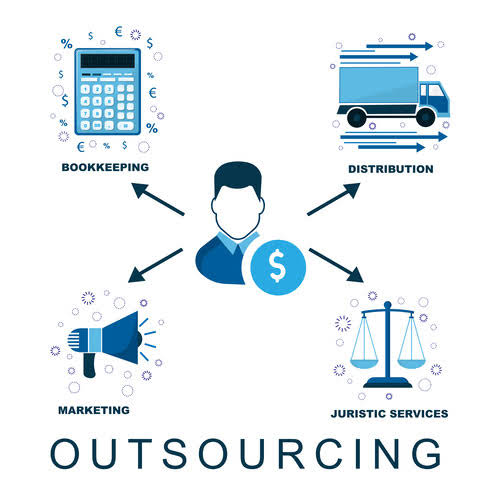
Plutus Health supports this transition with scalable RCM and automation strategies. ABA providers are grappling with high staff turnover (up to 65%), rising burnout, administrative overload, and stagnant reimbursement rates. https://diyanarifah.dinigrouptravel.com/2024/02/28/aipbs-online-99-hour-certified-bookkeeper-cb-prep/ These challenges directly impact care continuity, clinical outcomes, and operational performance.
Key Roles of Accounts Receivable in Medical Billing
Automation frees up space devoted to physical record storage to improve environments for both patients and staff. The amount of paperwork required in healthcare operations is immense, but going paperless via AR automation saves time, supply expenses (e.g. paper, toner, printers, etc.), and storage space. It also makes organizations more reliable and environmentally friendly, as patient data is stored and updated on the cloud. Gathering patient information such as payment needs sets up both patient interactions and billing transactions for success moving forward. That can be cumbersome and time-consuming if you’re still using manual processes and systems.

Efficient Documentation and Coding:
- Did you know an increase in accounts receivable days means that your medical collections are not going well?
- Victor has worked in large health systems, over $1B in Gross Revenue, along with smaller health systems managing over critical access hospital systems.
- It can also cause unnecessary write-offs, which means the provider will have to absorb that debt.
- Analytics and proactive feedback help pinpoint revenue cycle inefficiencies to guide strategic decisions and maintain healthy receivables.
- This results in a considerable loss for healthcare practices over time, hindering them from reaching their financial goals.
- It is imperative that all departments and clinical staff be made aware of their responsibility to accounts receivable, so that documentation and account receivable is not treated lightly.
If you are considering a new practice management system, pay close attention and work with your healthcare consultant to vet the billing functionality. To avoid this outcome, your AR process must be focused on serving the patient’s needs. The worst part about this scenario, is that you typically cannot appeal such denials. So it’s really important that your accounts receivable management staff is aware of your contractual filing deadlines.
Team MHC
This holistic approach to managing AR in healthcare highlights the intrinsic link between financial health and the ability to provide high-quality, patient-centered care. By streamlining Accounts Receivable Management, medical practices can reduce the time it takes to receive payments from insurance companies and patients. Faster collections lead to improved cash flow, which is essential for operational stability.

- Efficient AR strategies help to reduce operational burden, improve cash flow, and allow providers to focus on providing quality care.
- This step is only applicable if the relevant patients have any deductibles, co-pays or any other out-of-pocket expenses.
- On the other hand, regulations set by insurance companies vary widely and significantly influence the processing and approval of medical claims.
- Contact us for a complimentary consultation, where we will assess your practice’s accounts receivable (AR) needs and discuss how we can streamline your collections process.
Hiring experienced staff members who are knowledgeable about medical billing procedures can greatly improve accounts receivable management. These individuals can efficiently navigate complex billing systems, handle insurance claims, and address patient inquiries. Advance RCM provides expert medical billing and revenue cycle management services to both individual and institutional healthcare providers. We utilize the latest technology and trusted methods to ensure that your billing is accurate, How to Run Payroll for Restaurants compliant, and optimized. Common challenges include claim denials, delayed insurance reimbursements, and poor patient collections. AR management can become complex due to coding errors, incomplete information, or uncooperative patients.
Ensure precise coding of Medical Procedures & Diagnoses using standardized code
In addition to driving revenue, effective accounts receivable management improves cash flow. By streamlining and expediting the payment collection process, healthcare providers can minimize the risk of delayed or missed payments. This steady cash flow allows organizations to meet their financial obligations, maintain sufficient working capital, and invest in growth opportunities. Efficient accounts receivable management in the healthcare industry offers numerous benefits that contribute to the overall financial stability and success of healthcare organizations. By implementing effective management practices, healthcare providers can experience improved revenue, enhanced cash flow, and stronger patient-provider relationships.

Vice President – Operations
Automation, data analytics, and strategic partnerships with RCM firms—all contribute to efficient management of accounts receivable in healthcare, reducing costs and enhancing revenue cycle performance. The healthcare providers are considering outsourcing AR management operations and creating strategic partnerships with specialized revenue cycle management firms. Advanced technology solutions are increasingly being adopted by healthcare providers to automate accounts receivable in healthcare their accounts receivable management process. The smartest strategy to ease the process is outsourcing RCM to specialized companies that are trained to manage accounts receivable. They are proficient in submitting clean claims, managing denials, and underpayments. The accounts receivable process is initiated once you submit reimbursement claims to insurance companies for your healthcare procedures and treatments.